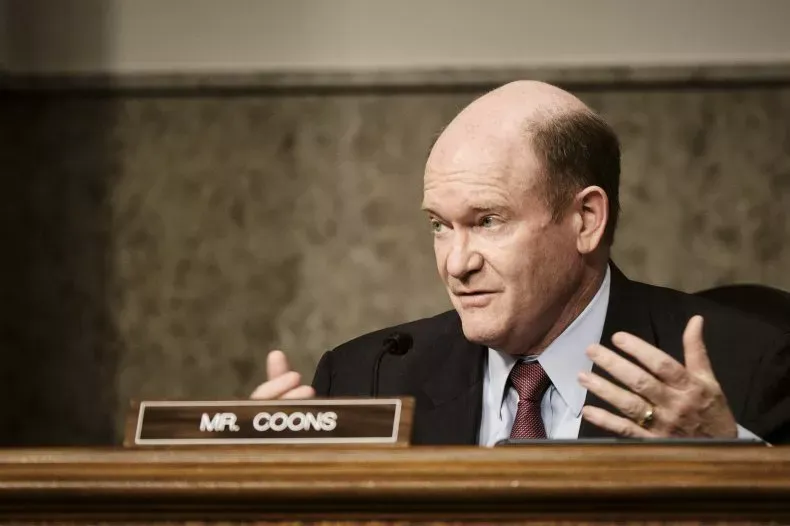The NO FAKES Act: Protecting Against AI Misuse

In a significant bipartisan move, a group of U.S. senators introduced the NO FAKES Act, aiming to address the growing concerns around unauthorized digital recreations of individuals' voices and likenesses. The proposed legislation, formally known as the Nurture Originals, Foster Art, and Keep Entertainment Safe Act of 2024, seeks to protect individuals from the misuse of their digital representations by AI technologies.
The NO FAKES Act: Key Provisions
The NO FAKES Act, spearheaded by Senators Chris Coons (D-Del.), Marsha Blackburn (R-Tenn.), Amy Klobuchar (D-Minn.), and Thom Tillis (R-N.C.), aims to make it illegal to create digital replicas of a person's voice or likeness without their explicit consent. If passed, this legislation would empower individuals to seek damages when their voice, face, or body is replicated by AI without authorization. The Act holds both individuals and companies accountable for producing, hosting, or sharing unauthorized digital replicas, including those generated by AI.
Protecting Personal Likeness and Voice
The NO FAKES Act underscores the importance of personal autonomy over one's voice and likeness in the digital age. The legislation provides a legal framework for individuals to protect their identity from unauthorized exploitation, which has become increasingly prevalent with the advancement of generative AI technologies.
Legal Recourse for Victims
One of the core components of the NO FAKES Act is the provision for victims to seek legal recourse. The Act allows individuals to claim damages if their digital likeness or voice is used without consent, offering a crucial safeguard against misuse. This provision aims to deter the creation and distribution of unauthorized digital replicas by imposing legal consequences on those who engage in such practices.
The Growing Problem of Unauthorized AI Replications
The rise of AI technologies has led to numerous instances where individuals, particularly celebrities, have found their digital likenesses misused. Notable examples include:
- Taylor Swift: Scammers used a fake digital likeness of Taylor Swift to promote a fraudulent Le Creuset cookware giveaway.
- Scarlett Johansson: An AI-generated voice resembling Scarlett Johansson's was used in a ChatGPT voice demo without her consent.
- Kamala Harris: AI technologies have been used to create deepfakes of political candidates, including Kamala Harris, making false statements.
These cases highlight the urgent need for legislation to protect individuals from unauthorized digital replications.
Statements from Lawmakers and Supporters
Senator Chris Coons emphasized the importance of the NO FAKES Act in protecting individuals' rights, stating, "Everyone deserves the right to own and protect their voice and likeness, no matter if you’re Taylor Swift or anyone else. Generative AI can be used as a tool to foster creativity, but that can’t come at the expense of the unauthorized exploitation of anyone’s voice or likeness."
Legislative Momentum
The NO FAKES Act follows the recent passage of the DEFIANCE Act, which allows victims of sexual deepfakes to sue for damages. This legislative momentum indicates a growing recognition among lawmakers of the need to regulate AI technologies and protect individuals from their potential misuse.
Support from the Entertainment Industry and Tech Companies
The NO FAKES Act has garnered support from several prominent entertainment organizations, including SAG-AFTRA, the RIAA, the Motion Picture Association, and the Recording Academy. These organizations have been actively pursuing protections against unauthorized AI recreations, highlighting the widespread concern within the entertainment industry.
OpenAI's Endorsement
Even tech companies are backing the legislation. OpenAI, a leading AI research organization, has expressed its support for the NO FAKES Act. Anna Makanju, OpenAI's vice president of global affairs, stated, "OpenAI is pleased to support the NO FAKES Act, which would protect creators and artists from unauthorized digital replicas of their voices and likenesses. Creators and artists should be protected from improper impersonation, and thoughtful legislation at the federal level can make a difference."
The introduction of the NO FAKES Act represents a significant step toward addressing the challenges posed by unauthorized AI replications of individuals' voices and likenesses. By providing legal recourse for victims and holding perpetrators accountable, the legislation aims to protect personal autonomy and prevent the misuse of AI technologies. As the Act moves through the legislative process, it will be crucial to monitor its progress and the impact it may have on safeguarding individuals' digital identities in an increasingly AI-driven world.
